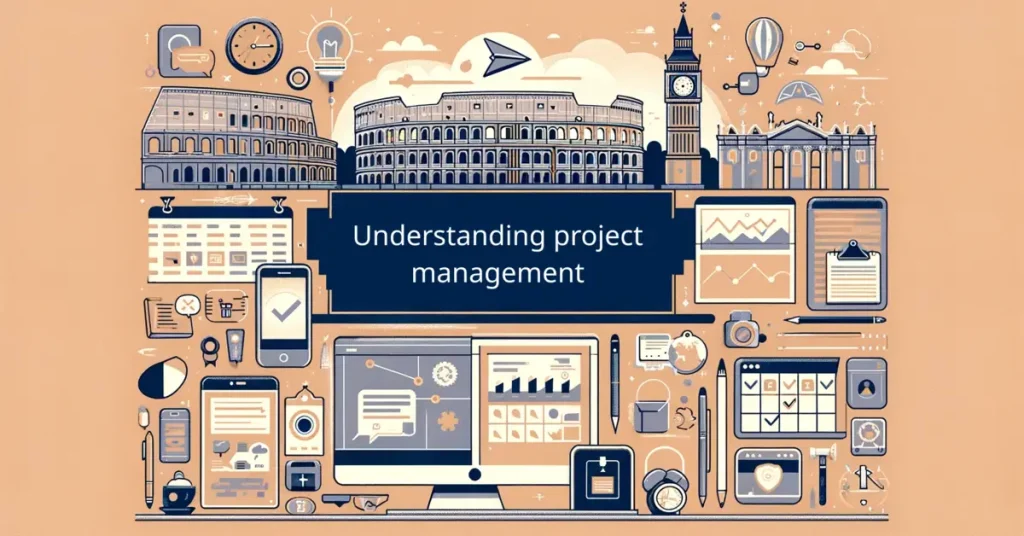Understanding project management
Project management is like planning your trip to Rome. You want to make a list of destinations (goals). You’ll also need to put some money aside, and schedule ways to get there. This skill is essential for advancing in digital marketing and beyond. In the following sections, I’ll get into more details on why I find it as maybe the most important one.

Start somewhere and invest in a solid foundation
I gained invaluable experience at Vodafone. Here, I managed online communities, crafted reports, and navigated crises. These responsibilities honed my skills in time management and communication. And laid the foundation for my success in digital marketing. It helped me take my career to another level. I became a Digital Marketing Manager at Microsoft. It doesn’t matter where you start as long as you give it your best to understand, improve, and celebrate your work.
How to master any project
1. Set a goal
Setting clear, measurable objectives for marketing campaigns is pivotal. It acts as a compass, guiding every decision and strategy. From personal experience, I’ve found that focusing on specific goals is a game-changer. For example, aim for higher, but healthy, sustainable KPY-s. Be it more conversions, clicks, or engagements than in previous quarters. This approach sets a concrete benchmark for success. It also pushes the team to innovate and optimize strategies for better performance.
2. Plan for the unexpected.
Make a realistic estimation of the time you need for a specific project. Too many times I’ve wanted to deliver fast and with high quality. Yet, I’ve struggled to meet both expectations. It’s important to have a buffer time for your projects. Your ability to estimate depends a lot on understanding the process. It is so a matter of experience and ability. So give yourself time and be kind to you.
3. Empower your colleagues.
It is very important to give your team all the necessary information. This way, they will understand the responsibilities of the job. As a proponent of open principles, I’ve always prioritized sharing my knowledge. I know the team can make decisions and act, even if I’m not there. Because they care about a work outcome they are part of.
4. Double-triple check.
Check critical elements like budgets, agency contracts, or important presentations. It’s essential to empathize with team members facing challenges and act as one. This can help prevent internal communication crises that will exacerbate external ones. By taking the time to address problems when they arrive, you can mitigate risks. Creating a culture of solidarity makes people feel supported and resilient. In time you are making yourself and the team anti-fragile.
5. Know what the internet is saying about your brand.
There were times in my career when I identified risks in time and addressed them with the other teams. But the teams did not pay attention to the seemingly unmeasurable. And there were a few cases when things escalated shortly. That said, it doesn’t mean you have to address every little thing. So how do you gauge the impact? By building a crisis strategy. This will help you choose your battles.
Project Management is here to stay
A good plan to manage your projects will also help you have an amazing trip in Rome. You will have no budget surprises, arrive on time, keep your luggage and have a ton of beautiful memories.
I am approaching the end of a sabbatical year. And I am actively applying for Digital Marketing and Product Marketing roles. This period of exploration provides me time to create invaluable content. It aims to bridge the gap between organizations and employees. If you know of any exciting opportunities, I welcome the chance to connect with me. I will be more than humble and thankful.
So, join me on this digital journey! Let’s break down Digital Marketing and help you too get a better opportunity.